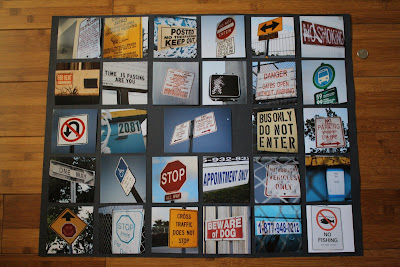When I was still in my early elementary school years, I could have easily identified with the fact that I owned a “knapsack of white privilege.”
After learning about slavery, segregation and modern discrimination, I felt lucky to be white skin-wise. I didn’t have to deal with racism because of the color of my skin. I didn’t have to deal with being turned down for jobs or being stared at any time I went out. I wished these things wouldn’t happen, but I was relieved that at least I wouldn’t have to deal with those issues.
After learning about slavery, segregation and modern discrimination, I felt lucky to be white skin-wise. I didn’t have to deal with racism because of the color of my skin. I didn’t have to deal with being turned down for jobs or being stared at any time I went out. I wished these things wouldn’t happen, but I was relieved that at least I wouldn’t have to deal with those issues.
But as I grew, I found my knapsack wasn’t as full as I thought. It may not even exist depending on if I managed to stay in the gender, race and sexuality closet.
Towards the end of elementary school I found my first obstacle: sexism.
I found that women had not always been equals. We weren’t always allowed to vote, or allowed to pursue the career of our choice and the law did not always protect us. We still aren’t. The Equal Right Amendment to this day has never been passed and women only earn 80 percent of what their male counterpart earns.
I found that women had not always been equals. We weren’t always allowed to vote, or allowed to pursue the career of our choice and the law did not always protect us. We still aren’t. The Equal Right Amendment to this day has never been passed and women only earn 80 percent of what their male counterpart earns.
I spent my time worrying about my body; scared I was being judged. Meanwhile, in middle school, many of my female friends developed bulimia and anorexia. Developing a strong mentality took years of overcoming self-harm and dealing with my physical body image.
My presumed knapsack had developed a worn, ratty patch.
Later in high school, I was faced with a new dilemma. I had my fist girlfriend and coming out to my parents was inevitable. Along with my mother’s constant denial, some ultra-religious “friends” shunned me. When in the same room, my partner and I received no recognition.
Now, in Missouri, a far more conservative place than Miami, it’s always a question of how people would react to my sexuality.
Now, in Missouri, a far more conservative place than Miami, it’s always a question of how people would react to my sexuality.
Luckily, students have been far more open and welcoming than I expected, but outside of Columbia I’m sure I’d face adversity. And not just for my sexuality, but because of my heritage.
My ancestry may not be evident by the color of my skin and because I speak English with an America accent, but I am Colombia. After leaving Miami, I became very aware of the cultural differences.
At home, I could speak basic conversational Spanish to my non-Hispanic friends and they could answer back. Here, that skill is non-existent. My food preferences have nothing to do with BBQ. If I’m just walking down the street, talking to my mom over the phone in Spanish, it’s not uncommon to receive confused stares.
Here, I cannot look at school faculty and see someone of my ethnic group. I cannot ask to speak to a manager and expect to speak with someone of my ethnic group. If traveling to more obscure parts of Missouri, I’ve been advised by good friends not to make my heritage too evident. Don’t speak Spanish too loudly. Don’t be myself too much.
I could easily not speak Spanish or reference my culture and pass off of pure white American, but I would never want to suppress myself. I am proud of my heritage and at one point I could vaguely relate to this “invisible knapsack of privilege.” But now my knapsack has been torn apart at the seams.
At home, I could speak basic conversational Spanish to my non-Hispanic friends and they could answer back. Here, that skill is non-existent. My food preferences have nothing to do with BBQ. If I’m just walking down the street, talking to my mom over the phone in Spanish, it’s not uncommon to receive confused stares.
Here, I cannot look at school faculty and see someone of my ethnic group. I cannot ask to speak to a manager and expect to speak with someone of my ethnic group. If traveling to more obscure parts of Missouri, I’ve been advised by good friends not to make my heritage too evident. Don’t speak Spanish too loudly. Don’t be myself too much.
I could easily not speak Spanish or reference my culture and pass off of pure white American, but I would never want to suppress myself. I am proud of my heritage and at one point I could vaguely relate to this “invisible knapsack of privilege.” But now my knapsack has been torn apart at the seams.







































